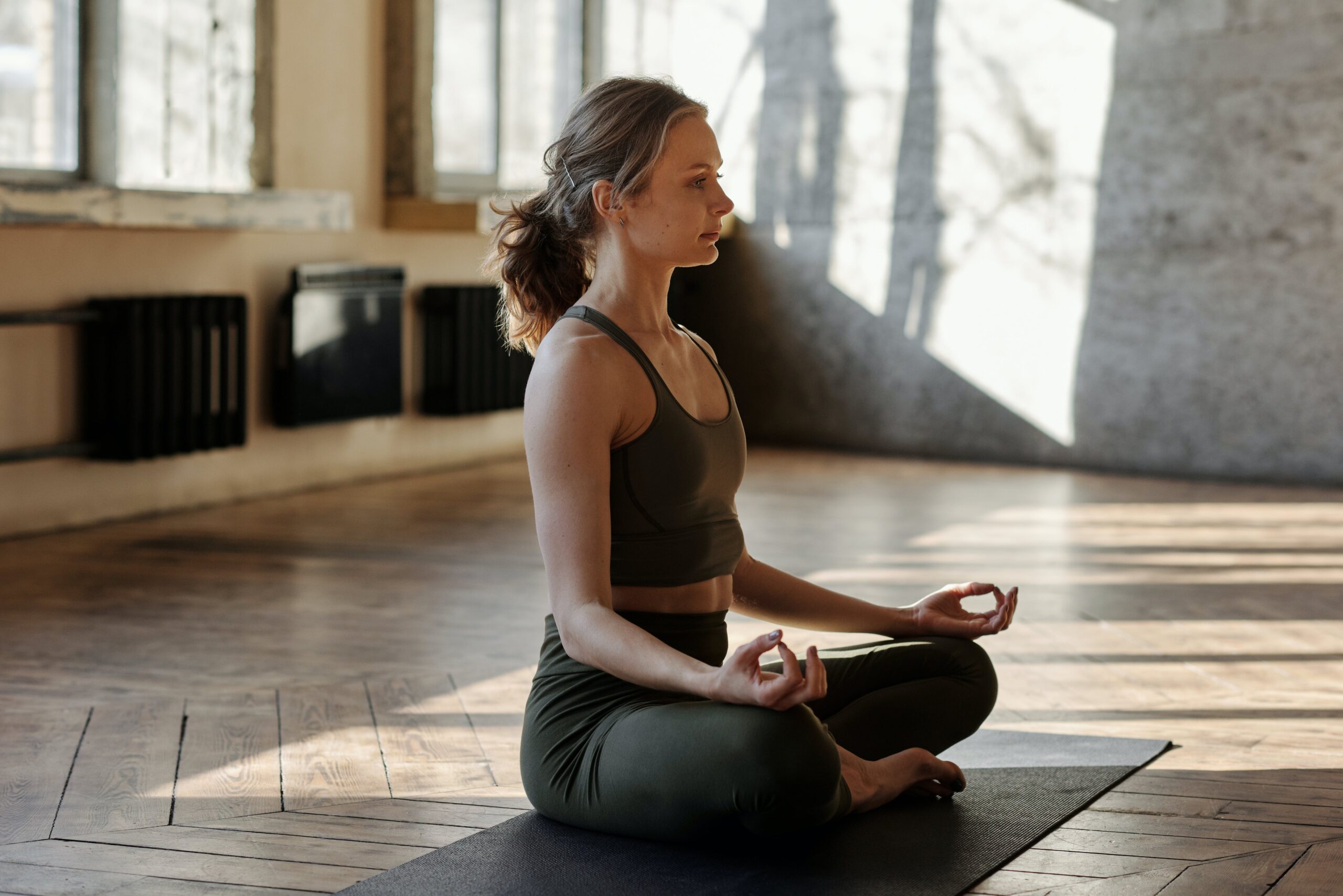The Calming Power of Meditation: Cultivating Inner Peace
In our fast-paced and often chaotic world, finding moments of inner peace and tranquility is essential for overall well-being. Meditation is a powerful practice that can help you cultivate a sense of calm and inner peace amidst the busyness of life. In this article, we will explore the calming power of meditation and how it can support you in finding balance, reducing stress and nurturing your mental and emotional well-being.
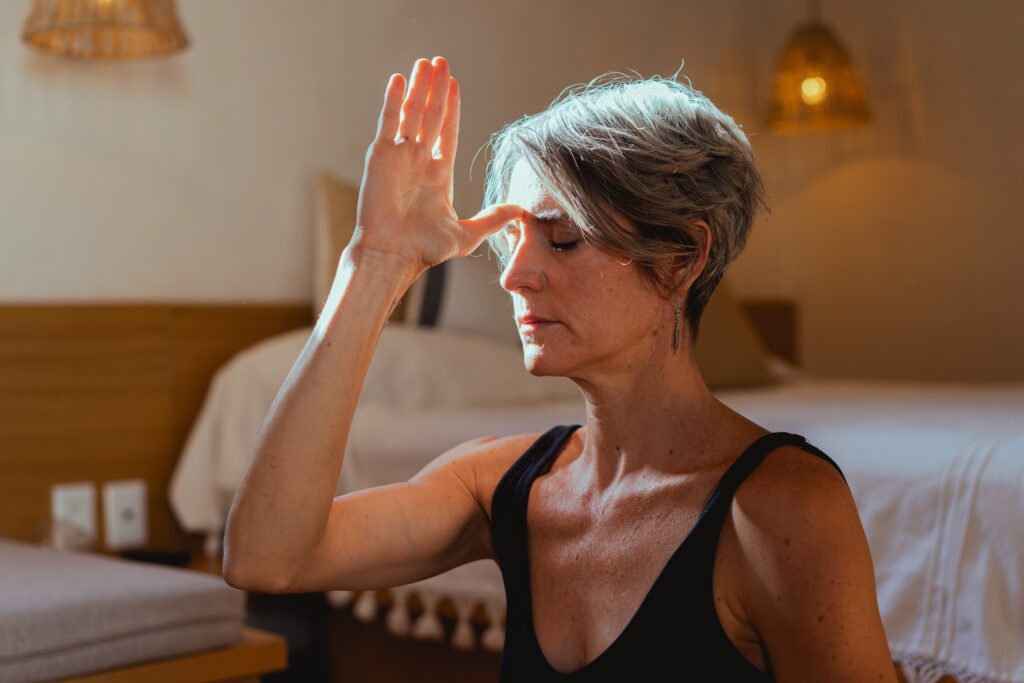
Understanding Meditation
Begin by understanding what meditation is and how it can benefit you. Meditation is a practice that involves training your mind to focus and redirect your thoughts. By engaging in regular meditation, you develop mindfulness, which is the ability to be fully present in the moment without judgment. This practice allows you to observe your thoughts and emotions with acceptance and cultivate a sense of peace.
For women with ADHD, meditation can help cultivate attention and concentration skills, improving overall focus and reducing distractibility.
For those with bipolar disorder, it can aid in managing mood fluctuations, reducing anxiety and promoting emotional stability. Additionally, for individuals with RSD, meditation can provide a sense of inner peace and self-acceptance, helping to navigate the challenges of rejection sensitivity.
By incorporating meditation into their daily routine, women can develop greater self-awareness, enhance emotional regulation and experience a deeper connection with themselves. Starting with short meditation sessions and gradually increasing the duration can make it more accessible and manageable.
Guided meditations, mindfulness apps or attending meditation classes can provide additional support and guidance. Through regular practice, women can tap into the transformative power of meditation, experiencing increased calmness, clarity and overall well-being.
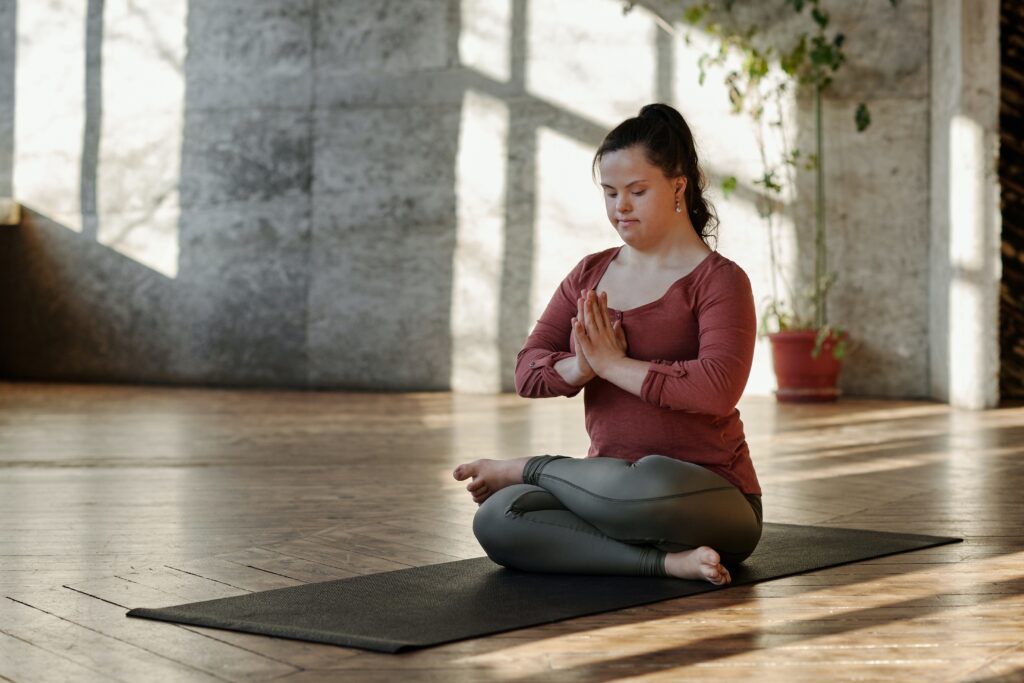
Reducing Stress and Anxiety
One of the primary benefits of meditation is its ability to reduce stress and anxiety. By slowing down and focusing your attention on the present moment, meditation helps calm the mind and relax the body. Through deep breathing techniques and mindfulness exercises, you can release tension, alleviate worry and experience a greater sense of tranquility.
Reducing stress and anxiety is crucial for women with ADHD, bipolar disorder, and/or rejection sensitive dysphoria to promote emotional well-being. These conditions can often be accompanied by heightened levels of stress and anxiety, which can negatively impact overall health. Implementing holistic strategies to manage stress and anxiety is essential.
Engaging in relaxation techniques such as deep breathing exercises, progressive muscle relaxation or guided imagery can help calm the mind and body. Mindfulness practices, such as meditation or yoga, can promote a sense of presence and reduce anxiety by focusing on the present moment.
Prioritizing self-care activities, such as engaging in hobbies, spending time in nature, or practicing self-compassion can also play a significant role in stress reduction, as these too are a form of meditation.
Additionally, maintaining a balanced lifestyle with proper nutrition, regular exercise and adequate sleep can support overall well-being and resilience to stress. Seeking support from therapists, support groups, or holistic practitioners can provide additional guidance and tools to manage stress and anxiety effectively. By actively addressing stress and anxiety, women can cultivate a greater sense of calmness, balance and emotional stability in their lives.
Enhancing Self-Awareness
Meditation promotes self-awareness, which is the ability to observe your thoughts and emotions without getting caught up in them. As you practice meditation, you develop a deeper understanding of your inner landscape, including your patterns of thinking and emotional responses. This heightened self-awareness allows you to cultivate inner peace by consciously choosing how to respond to challenging situations.
Enhancing self-awareness is a transformative practice. It involves developing a deep understanding of one’s thoughts, emotions, behaviors and patterns of response. By cultivating self-awareness, women can gain insight into the underlying causes of their challenges and develop strategies for self-regulation and emotional well-being. This practice allows them to recognize their unique strengths, triggers and limitations.
Techniques such as mindfulness, journaling and therapy can facilitate self-reflection and introspection, fostering a greater sense of self-understanding and acceptance. By being attuned to their thoughts and emotions, women can make informed choices, set healthy boundaries and engage in self-care practices that align with their needs. Enhancing self-awareness empowers women to navigate their conditions with greater self-compassion, resilience and personal growth.
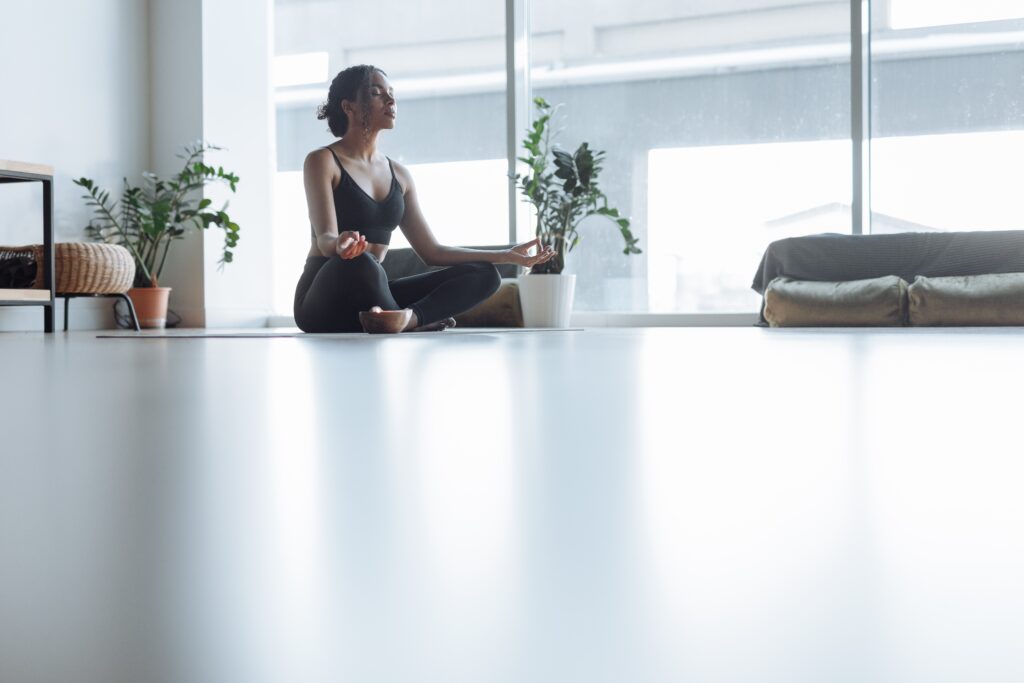
Improving Emotional Well-being
Regular meditation can positively impact your emotional well-being. By observing your thoughts and emotions during meditation, you become more attuned to your inner world. This increased awareness helps you recognize and regulate your emotions more effectively, leading to a greater sense of emotional balance, resilience and inner peace.
ADHD, Bipolar Disorder and/or RSD can present unique challenges related to mood regulation, emotional sensitivity and self-esteem. Holistic approaches can play a significant role in enhancing emotional well-being. Incorporating practices such as mindfulness, meditation and yoga, which help cultivate self-awareness, reduce stress, and promote emotional balance.
Engaging in regular exercise, spending time in nature and practicing relaxation techniques can also support emotional well-being by boosting mood, reducing anxiety and improving overall mental health. Nurturing healthy relationships, seeking therapy or counseling, and participating in support groups can provide valuable emotional support and guidance.
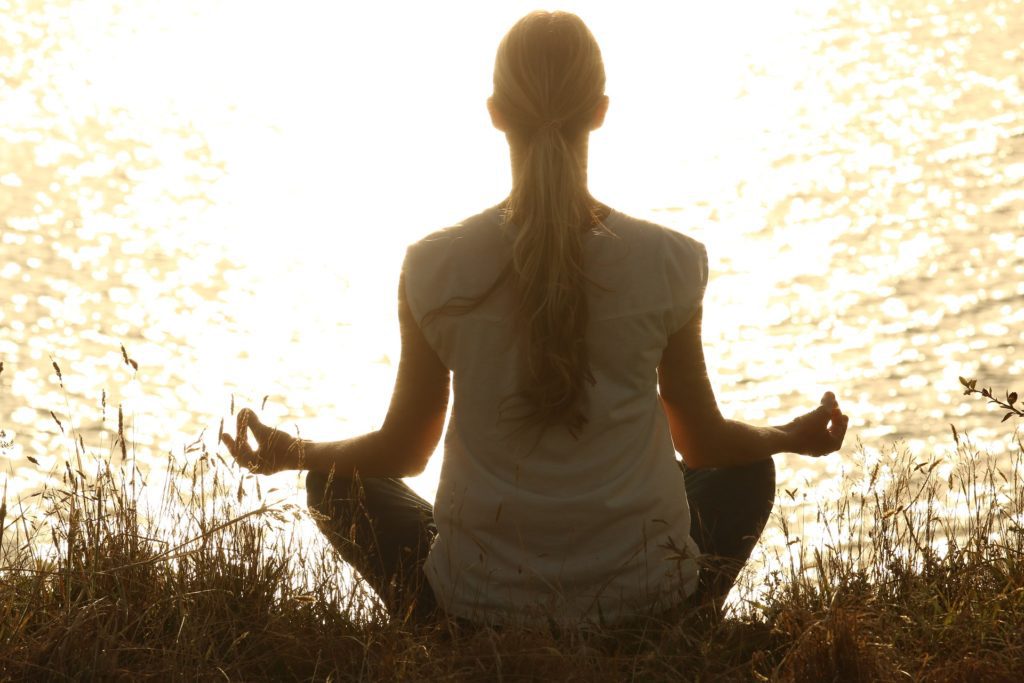
The Calming Power of Meditation: Cultivating Inner Peace
Cultivating Mindfulness in Daily Life
The benefits of meditation extend beyond your formal practice sessions. Through regular meditation, you develop the capacity to carry mindfulness into your daily life. By being fully present in each moment, you cultivate a greater appreciation for the simple joys of life, reduce reactivity and approach challenges with a calm and centered mindset.
Mindfulness involves intentionally bringing one’s attention to the present moment, without judgment. This practice can help women develop a deeper awareness of their thoughts, emotions and physical sensations, allowing them to respond to situations with greater clarity and composure.
By incorporating mindfulness into daily activities such as eating, walking or even washing dishes, women can enhance their ability to stay present and reduce the impact of distractions or racing thoughts. Mindfulness practices, such as meditation or deep breathing exercises, can also serve as anchors during challenging moments, helping to regulate emotions and promote a sense of calm.
By cultivating mindfulness in daily life, women can cultivate a greater sense of self-acceptance, improve their ability to navigate stress and anxiety and experience a more grounded and centered way of being.

Different Meditation Techniques
Explore various meditation techniques to find the ones that resonate with you. Breath-focused meditation, loving-kindness meditation, body scan meditation and guided visualization are just a few examples. Experiment with different techniques and find the ones that help you feel most centered and peaceful.
Mindfulness meditation involves focusing one’s attention on the present moment, observing thoughts and sensations without judgment. This practice can help women cultivate self-awareness and reduce anxiety.
Guided meditation, where an instructor leads the session, provides structure and support for individuals who struggle with maintaining focus.
Loving-kindness meditation focuses on developing compassion and kindness towards oneself and others, fostering emotional resilience and self-acceptance.
Breath-focused meditation involves paying attention to the breath, promoting relaxation and grounding.
Movement-based practices, such as walking meditation or yoga, combine physical movement with mindfulness, catering to those who find sitting still challenging.
Women can explore these techniques to find the ones that resonate with them and incorporate them into their daily routine. Flexibility in choosing meditation techniques allows for personalized and adaptable approaches to support their unique needs and preferences.

Creating a Meditation Routine
Establishing a regular meditation routine is key to reaping its calming benefits. Find a quiet and comfortable space where you can meditate without distractions. Start with short sessions, gradually increasing the duration as you become more comfortable. Set aside dedicated time each day to cultivate inner peace through meditation.
Establishing a regular meditation practice provides structure and consistency, allowing for a deeper integration of its benefits into daily life. Start by selecting a specific time and space dedicated to meditation, ensuring it is a quiet and comfortable environment. Begin with shorter sessions, gradually increasing the duration as focus improves.
Setting realistic goals and being gentle with oneself is important, as meditation can be challenging at first. Experiment with different techniques to find what resonates best. Utilize guided meditation apps or recordings for additional support.
Incorporating meditation into existing routines, such as before bed or upon waking up, can enhance consistency. Consistency is key, so aim for daily practice even if it’s just for a few minutes. By creating a meditation routine, women can cultivate a sense of calm, emotional resilience and improved focus, leading to enhanced overall well-being and inner peace.

The Calming Power of Meditation: Cultivating Inner Peace
Supportive Resources and Communities
Utilize resources and communities that can support your meditation practice. There are numerous meditation apps, guided meditation recordings and online communities where you can connect with like-minded individuals. These resources provide guidance, inspiration, and a sense of belonging on your journey to cultivating inner peace.
Connecting with others who share similar experiences can provide a sense of validation, understanding and encouragement. Online forums, support groups and social media communities dedicated to these conditions offer spaces for women to connect, share insights and seek advice.
Additionally, seeking out reputable educational resources, books and websites, just like this one, that provide accurate information and guidance can empower women to better understand their conditions and explore holistic approaches.
Professional support from therapists, counselors or holistic practitioners who specialize in these areas can offer personalized guidance and tools for managing symptoms.
Peer support groups and therapy sessions specifically designed for ADHD, bipolar disorder, and RSD can provide a safe and nurturing space for women to share their challenges, receive support and learn coping strategies.
By tapping into supportive resources and communities, women can feel less alone, gain valuable insights and cultivate a network of understanding individuals who can journey alongside them towards holistic well-being.

Meditation is a powerful practice that can help you find calm and inner peace in a hectic world. By reducing stress, enhancing self-awareness and improving emotional well-being, meditation allows you to navigate life’s challenges with greater ease and grace.
Embrace the calming power of meditation, establish a regular practice and experience the transformative effects it can have on your body, mind and your spirit.
Disclaimer: The information and/or products mentioned in this article are provided as information resources only and are not to be used or relied on to diagnose, treat, cure or prevent any disease. The statements made in this article have not been evaluated by the Food and Drug Administration. Any products mentioned are not intended to diagnose, treat, cure, or prevent any disease, but rather to be considered as an informational resource only to encourage critical thinking and personal research. The information in this article is intended for educational purposes only. The information is not intended to replace medical advice offered by licensed medical physicians. Please consult your doctor or health care practitioner for any and all medical advice.
and don't forget to sign up for our weekly newsletter. it's free!

52 Weeks, 52 Topics! Get Our Latest ‘Stay Well’ Newsletter Every Monday And Start Your Week Off AllNaturWell. A New Tip, A New Study Revealed, A New Product Reviewed. Get It Right To Your Inbox Weekly. No Need To Wait. It’s Free!
